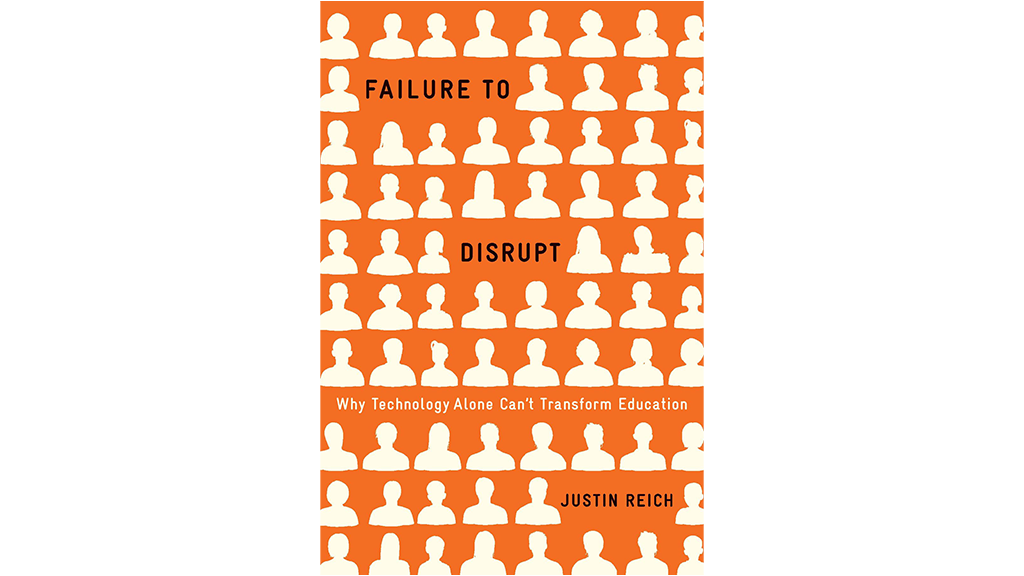
PHOTO CREDIT: HARVARD UNIVERSITY PRESS
In the wake of a global pandemic, Justin Reich’s book delivers a sobering argument against the overestimation of the power of technology to profoundly alter the ways educational institutions operate and how students learn. The author provides realistic observations and analyses of various educational technologies as they were promoted and celebrated as the forces that will transform the education field. Moreover, due to his positions at two distinguished universities, Harvard and MIT, Reich had exceptional and unparalleled opportunities that allowed him to examine the progress of educational technology trends and recognize their limitations.
In this era of virtual learning and the overwhelming reliance on technology to connect while maintaining social distancing, this book emerged to offer valuable insights and illuminate the issues with educational technologies. It explicitly informs readers on the various approaches and tools technologists developed and what should be taken into consideration when attempting to adopt, utilize, and implement technologies in varied educational settings.
Failure to Disrupt: Why Technology Alone Can’t Transform Education challenges perceptions surrounding the promises and predictions of large-scale educational technologies and their abilities to establish dramatic shifts in education. For instance, educational technologists promoted their innovations on the premise of envisioning a future where education would be affordable, accessible, effective, and engaging for all students. However, the author documents the inconsistencies in enrollment and completion of online courses, the benefits (or lack thereof) that students gained from participating in online certificate courses, and the pivotal role of educational technologies in perpetuating the cycle of inequitable access for students from low socioeconomic status. Furthermore, Reich elaborates on the magnitude of four dilemmas confronting educational technologies: Curse of the familiar, the trap of routine assessments, the EdTech Matthew effect (where the already advantaged gain more from technology than do the less fortunate), and the toxic power of data and experiments.
Considering the adverse impact of COVID-19 on the education field, and the adjustments made to accommodate distance learning, this book is a critical and timely contribution for those invested in educational technology. The author guides readers through the establishment of various educational technology tools, their claims, and their mystifying hype.
One of the key chapters in the book is perhaps the last one, “Conclusion: Preparing for the Next Learning-at-Scale Hype Cycle.” The author invites readers, educators, administrators, policymakers, and technologists to be deliberate in assessing the value of educational technologies and to be wary of new tools that proclaim to be transformative. Accordingly, he poses the following questions to emphasize the importance of evaluating these tools logically aside from the charismatic lure of new technologies: “1. What’s new? 2. Who is guiding the learning experience—an instructional designer, an adaptive learning algorithm, or a community of peers? 3. Pedagogically, is this attempting to fill pails or kindle flames? 4. What existing technologies does this adopt?” Moreover, he signifies the need to critically examine how and when technological tools can be incorporated into students’ learning process and cautions against the intractable factors that could hinder learners’ abilities to achieve the desired results.
Failure to Disrupt provides rich, compelling, and insightful arguments to examine the hype regarding educational technology. It also establishes the pillars for an effective and promising future in the educational technology field.
Norah Alomary (nalomary@uncc.edu) is a doctoral candidate at The University of North Carolina at Charlotte.

Share this content